Calvin Rosser’s Essays
My essays explore what I’ve learned and unlearned while trying to build a fun, fulfilling, and equanimous life over the last decade. They are ordered from most recent to oldest and cover everything from love and loss, to health and friendship, to money and careers, to how to find your way through calm and stormy waters.
The older essays feature the ideas of a young writer with big ambitions and a desire to codify life into clear frameworks and principles, while the more recent essays reflect my shift toward a less achievement-oriented life and a worldview that’s more like the ineffable rhythms of the ocean.
The fun of writing over time is to be humbled by the small and big perspective shifts that life offers and to learn to not take yourself so seriously along the way.
Now, I invite you to take a walk through the imperfect and everchanging catacombs of my mind. Perhaps you’ll uncover something that nudges you in the direction you’d like to go.
Categories
All Essays

Letting Go of Ambition
:This essay explores ambition, its costs, and how we can rethink its role in our lives.

Footprints
:In our endless striving to leave our mark on the world, we overlook the simple source from which real change emerges.

The Wave I’ll Never Forget
:A story about loss, love, and discovering what exists beyond the physical realm via a special wave on my mom’s birthday.

Seeking Solitude on the Sandy Shores of Costa Rica
:Why are we so afraid of being alone? This essay explores the subtle and precious gifts that only solitude can offer.

Let Go or Be Dragged: Adventures in The Last Frontier
:A story about letting go, Alaskan grizzlies, and what it means to live in a fundamentally unpredictable and uncontrollable world.

The Case for Being Less Serious
:When confronted with increased responsibility and agency in adulthood, many people opt to become more serious. Is this the right choice?

Charles Bukowski on Writing, Creativity, and Living Fully
:The best of poet and novelist Charles Bukowski’s ideas about writing, creativity, and navigating the ups and downs of living.

How to Make Friends as an Adult
:Many adults are lonely and want more friends. This article explores how to make friends as an adult in a more fun and intuitive way.

The Day I Heard the Birds Sing
:In the midst of a burgeoning existential crisis, I heard birds sing on a remote Portuguese island. This is the story of how hearing that first birdsong changed my life for the better.

Calvinball: The Only Game Worth Playing
:Figuring out how to enjoy your life is like Calvinball. It’s a game that’s best played by making up the rules as you go.

What Do You Want?
:Figuring out what you want is the central task of adulthood, and it’s not an easy one. Learn how you can better answer life’s most important question.

Musing on Living a Long, Vibrant, and Productive Life
:This article explores ideas, protocols, and products that I’ve experimented with on my pursuit of living a long, energy-filled life with a high degree of satisfaction.

Losing Someone You Love – 10 Lessons for Overcoming Grief
:Losing someone you love is never easy. This article discusses some thoughts on grief and how you can better navigate difficult times.

Defying Cultural Gravity
:People blame bad luck and political enemies for their dissatisfaction, but cultural gravity is the real culprit. This article explores how you can question the default path and defy gravity.

40 Unconventional Pieces of Advice That Most People Ignore
:Good life advice is easy to find, but hard to follow. These 40 pieces of advice will help you create an aligned life with more inner peace.

It’s Time to Leave the Casino
:After 20 months of trying and failing to beat the market, it’s time to take back control of my time and leave the casino.

How to Start a Memorial Scholarship Fund in Memory of Someone in 2024
:After losing my mom, I wanted to create a memorial scholarship fund to honor her legacy. This article covers a simple process I discovered for creating tax-deductible memorial scholarships in minutes.

33 Beautiful Untranslatable Words from Around the World
:This list of beautiful, untranslatable words from around the world will help you understand and enhance your experience of the world.

Money and Happiness
:Money increases happiness, but not in the ways you might expect. This article explores how money actually improves the quality of your life.

The Nuance of Privilege
:Privilege is our blindness to things that are visible to someone whose life is different from ours. This essay explores how and why we need to see the nuance of privilege.

What Target V-Necks Taught Me About Life
:This is the story of my obsession with Target V-necks, getting lost in the expectations of other people, and returning to my core values.

How to Be Unpersuasive
:If you want to be persuasive, spread ideas, and elevate causes, you need to avoid these 5 common mistakes that prevent you from being effective.

A Simple Investing Guide for Growing and Protecting Your Money
:After losing $50,000 in the market with one bad investing decision, I created this written strategy to help me avoid such costly mistakes in the future. This investing guide is my attempt to learn from and make meaning of my experience. It outlines my investing beliefs, principles, and strategy.

The End of a 40+ Country Journey of Long-Term Travel
:Long-term travel offers both tasty fruit and painful thorns. This essay explores what I learned and where I ended up after four years of working and traveling to 40+ countries.

Know Your Limits: Should You Always Send It?
:It’s hard to know your limits until you’ve gone beyond them. This article explores the tedious art of testing and knowing your limits.

4 Powerful Lessons from 1.2 Decades of Relationship Mistakes
:After decades of relationship mistakes and honest reflection, I learned four powerful lessons that will improve the quality of your romantic relationships.

2024 Burning Man Packing List: Don’t Forget These Items
:Planning for Burning Man is overwhelming. This Burning Man packing list will help you identify what you need to survive and thrive on the playa.
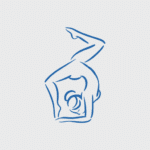
Naked Yoga, Breathwork, and Ecstatic Dance
:My experience with naked yoga, breathwork, sound healing, and ecstatic dance. Learn how these practices can challenge your worldview, deepen your consciousness, and enhance the quality of your life.

What is the Meaning of Life?
:Get the answer to the big question: What is the meaning of life? Learn how to confront nihilism and find meaning in your life.

28 Books that Will Open Your Mind, Expand Your Knowledge & Transform the Way You Live
:This vetted list of 28 great books will help expand your knowledge, open your mind, and transform the way you think about the world.

How to Set and Achieve Meaningful Goals
:This in-depth goal-setting guide will teach you how to evaluate your life, set inspiring and smart goals, and execute on a vision that will improve the quality of your life. It includes free templates and resources.

The Truth About Falling Out of Love
:I fell in love with a girl during college, and after 5 years of dating, I broke off the relationship to travel the world. In this article, you’ll find my candid thoughts about the difficult process of falling out of love and moving on.

How to Read a Nonfiction Book
:Nonfiction books can radically transform your life. This article teaches you a simple system that will allow you to understand, retain, and apply the key lessons and insights from the nonfiction books you read.

3 Reasons Why Relationships Fail (And How to Avoid Them)
:If you’re interested in building romantic relationships that endure, read this article to learn about the 3 universal killers of romantic relationships and how you can avoid them.

A Letter to My 18-year Old Self
:In the last decade, I’ve moved from a poor kid in Orlando to a Princeton graduate and entrepreneur who travels the world. In this letter to my younger self, I give advice and lessons I’ve learned along the journey.

5 Lessons from My First Year as a Writer
:I started writing to help people, and during my first year as a writer, I learned a lot more than how to write. This article explores 5 lessons I’ve uncovered that are applicable to anyone pursuing a creative endeavor.
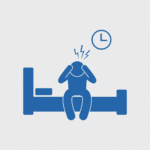
How to Survive the Sunday Scaries
:The Sunday scaries can be incredibly overwhelming. In this short reflection, I give a candid look at how I conquered the chaotic river of anxiety-inducing thoughts keeping me up on Sunday night in London.

What Burning Man Taught Me About Death, Dancing, and Intimacy
:In 2019, I ventured to Burning Man, the legendary temporary city in the Nevada desert. I left the experience feeling a deep internal stillness, and I took away important lessons about death, dancing, and intimacy.

How to Make Hard Decisions – Advice From Comedian Kevin Hart
:Your daily choices determine the quality of your life and who you become. In this article, I discuss a decision-making framework used by comedian Kevin Hart’s and how you can use that framework to make better choices in your life.

49 Badass Quotes That Will Make You Unstoppable
:In life, we’re all dealt a different hand of cards. But the cards you are dealt don’t matter nearly as much as how you decide to play those cards. Below you will find 44 badass quotes that will inspire you to be better, live better, and take action.
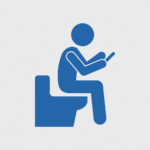
7 Practices to Increase Your Productivity
:Productivity is not just about getting more done in less time; it’s about getting the RIGHT things done in less time. This article details 7 unconventional practices that will help boost your daily productivity.

My Mom’s Path to Suicide: Battling the Darkness in a Broken System
:After a decade-long battle with the darkness, my mom committed suicide in late 2017. In this article, I tell her story and provide practical thoughts on how we can move forward as a society.

The Subtle Art of Not Being Right
:We are constantly blinded by our desire to be right, and while being right is often rewarded, it might not always be the right thing to do. If we learn to take a more open perspective, we might just find the answers that we are looking for.
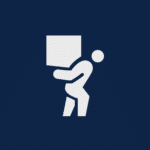
Take Responsibility Instead of Assigning Fault
:This article examines the critical difference between responsibility and fault. If you don’t understand this distinction, you will drown in misery when things don’t go as planned in your life.

Should You Try to Change People?
:Have you ever had someone try to change you? If so, read this article, which explores our often misguided desire to change people and how we can adopt an alternative approach to inspire and motivate change.

The Big Challenge of Being an Adult
:When we’re young, life is easy. But as adults, we face a more challenging and ambiguous reality. If we don’t learn how to navigate this new reality successfully, we might end up living an unfulfilling life.

12 Practices That Have Improved My Life
:I treat my life as a big experiment aimed at designing an immensely exciting and fulfilling life on my terms. In this article, I discuss 12 practices that have made a profound and positive difference in my life.

How to Overcome Fear in Life: A Framework for Turning Fear into Fuel
:Fear will either serve us or stunt us. To grow and reach new levels of fulfillment, we must learn to channel and overcome the fears that keep us from taking the more fulfilling path. This article will teach you how to do so.
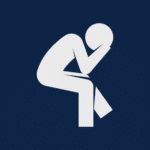
Finding Meaning in Sudden Death
:I lost my mom to suicide, my mentor to cardiac arrest, and my dog to cancer. These experiences came with deep suffering. In this article, I explore how finding meaning in my suffering has helped me move forward.

Why You Should Stop Reading the News
:I stopped consuming news 3 years ago, but was this the right decision? This article explores why we consume news, problems with news in the digital era, and how we can move forward as conscious consumers.

15 Questions to Deepen Friendships
:This article outlines 15 thought-provoking questions that you can ask colleagues, new acquaintances, and old friends to help deepen your relationships.

How to Build More Meaningful Relationships
:As humans, we have many cognitive biases that limit our ability to build meaningful relationships with others. I explore 4 of those biases in this article and discuss how you can overcome them.

I Will Make You Proud: A Eulogy for My Mom
:My amazing mom, Sheri Rosser, took her own life and passed on my birthday. This is the eulogy I delivered at her funeral to remember and celebrate the 25 years we spent together.

Lessons Learned from Poverty and Wall Street
:This is a story about how growing up in poverty and making career decisions while working on Wall Street taught me the value of starting with why and creating a narrative that works for you.

You Have a Choice
:As humans, we have the unique capacity to choose our response to any set of circumstances. This article explores this fundamental principle and how you can use it to improve the quality of your life.

The Power of Mentorship and Paying it Forward
:This is a story about Howard Sherman, a generous man, friend, and mentor. Through his actions, he helped transform my life and taught me the power of mentorship and paying it forward every single day.

